Ap Computer Science Principles Codeorg Video Review Answer Key

Bring CS Principles to your schoolhouse!
Computer Science Principles introduces students to the foundational concepts of informatics and challenges them to explore how computing and applied science can touch on the world. More than a traditional introduction to programming, it is a rigorous, engaging, and approachable curriculum that explores many of the foundational ideas of computing so all students sympathize how these concepts are transforming the world nosotros alive in.
This yr-long curriculum can exist taught as an introductory class and equally an AP course - no prerequisites required for students or for teachers new to information science! In addition, our curriculum is available at no cost for anyone, anywhere to teach. And, professional person learning opportunities are available!
Why should you teach CS Principles with Code.org?
It's endorsed by the Higher Board.
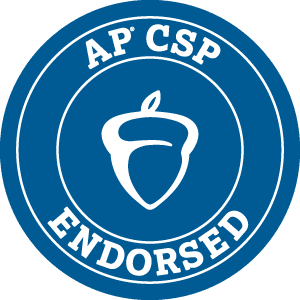 Code.org is recognized by the Higher Board as an endorsed provider of curriculum and professional development for AP® Computer Science Principles. This endorsement affirms that all components of Code.org'south CS Principles offerings are aligned to the AP Curriculum Framework standards and the AP CS Principles assessment. This affords schools access to resources including an AP CS Principles syllabus pre-approved past the College Board'southward AP Course Inspect, and officially recognized professional development that prepares teachers to teach this curriculum.
Code.org is recognized by the Higher Board as an endorsed provider of curriculum and professional development for AP® Computer Science Principles. This endorsement affirms that all components of Code.org'south CS Principles offerings are aligned to the AP Curriculum Framework standards and the AP CS Principles assessment. This affords schools access to resources including an AP CS Principles syllabus pre-approved past the College Board'southward AP Course Inspect, and officially recognized professional development that prepares teachers to teach this curriculum.
It's backed by research.
Six different studies testify: students who study computer science perform better in other subjects, excel at problem-solving, and are more likely to attend college.
Students who take AP Computer Science Principles, in particular, are 12% more probable to enroll in college compared to similarly-situated peers, and students who accept AP exams are more probable to graduate 4-yr college, regardless of their score on the exam. AP informatics students also earn better AP Calculus scores than comparable students who don't have AP information science.
CS Principles is designed for beginners.
Our team designed the CS Principles curriculum to support students and teachers new to the discipline. The curriculum includes daily lesson plans made up of inquiry-based activities, videos, assessments, and computing tools, allowing teachers to guide and learn alongside students as they discover core computing concepts.
Every lesson program and activity is tested by a diverse mix of classrooms around the country to make sure it's appropriate and engaging for all students.
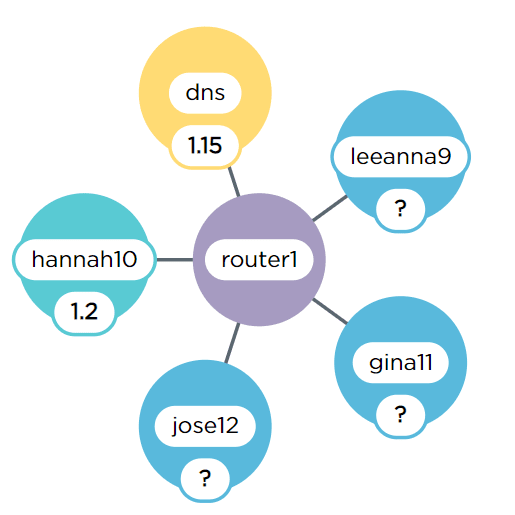
Students learn near the challenges of supporting a giant network like the world wide web, while solving problems near encoding and transmitting information using the Internet Simulator.

Students get hands on experience with concepts like binary and pixels, text pinch, cryptography, and more through computational widgets, which are directly integrated into the Code.org platform.
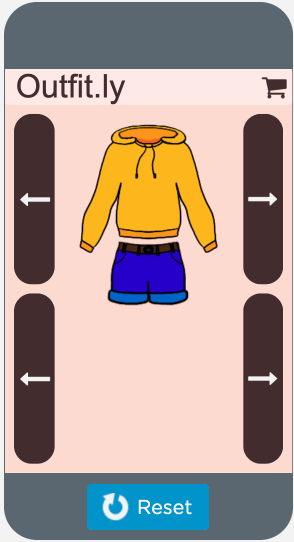
Using the JavaScript language, students learn about algorithms and program design as they create a series of real working, shareable apps with App Lab.
We support you lot every step of the style with extensive teacher resource.
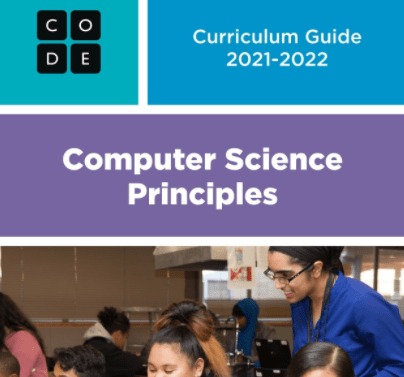
Check out the Curriculum Guide to learn more about the classroom and student practices that catamenia throughout the grade, overviews of each unit, implementation considerations, and guidance for navigating class tools and teacher resources.
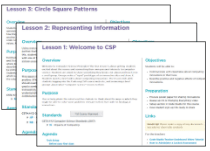
The CS Principles curriculum page is where teachers can admission daily lesson plans. Along with integrated discussion goals, teaching tips, and assessment opportunities, our lesson plans come with detailed pacing instructions, activity guides, required resources, and more!
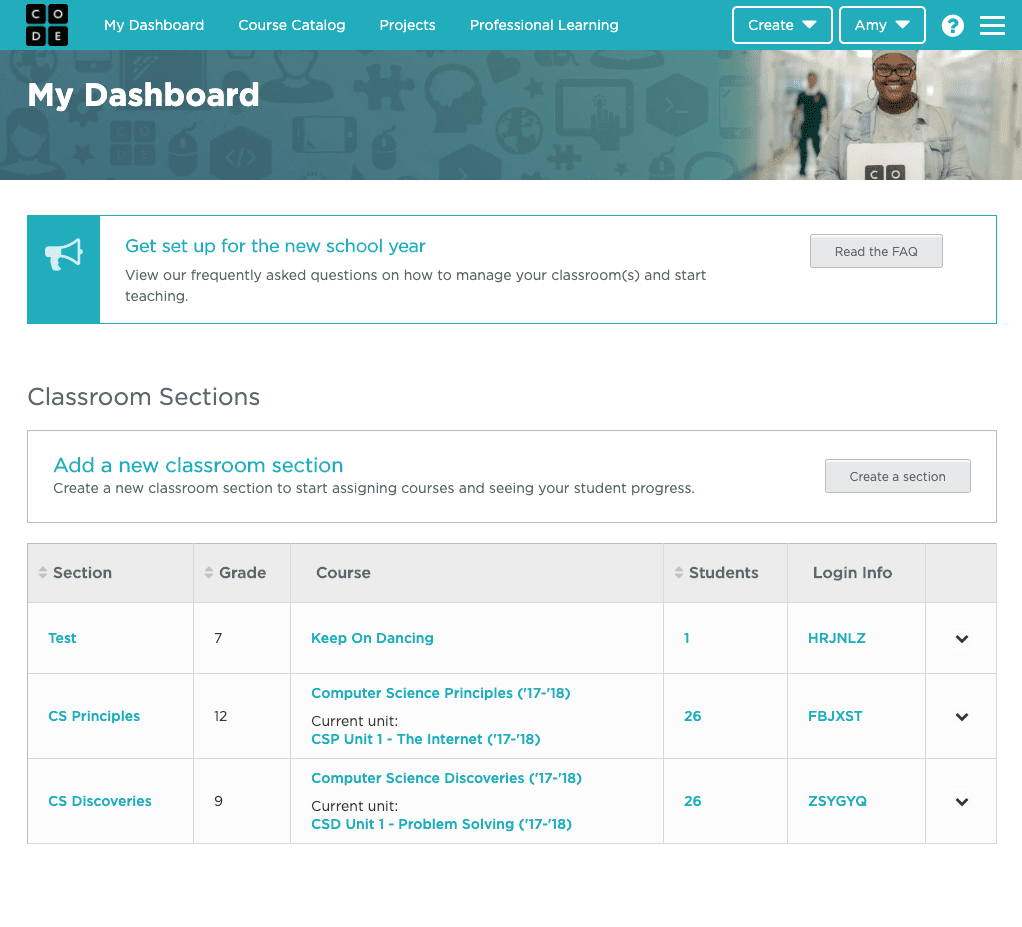
Create and manage your classroom sections, check student progress, administer assessments, and integrate with your Google or Clever classroom, all from your Teacher Dashboard! (Sign in required.)
Our Professional person Learning Program comes recommended past more than 100,000 teachers.
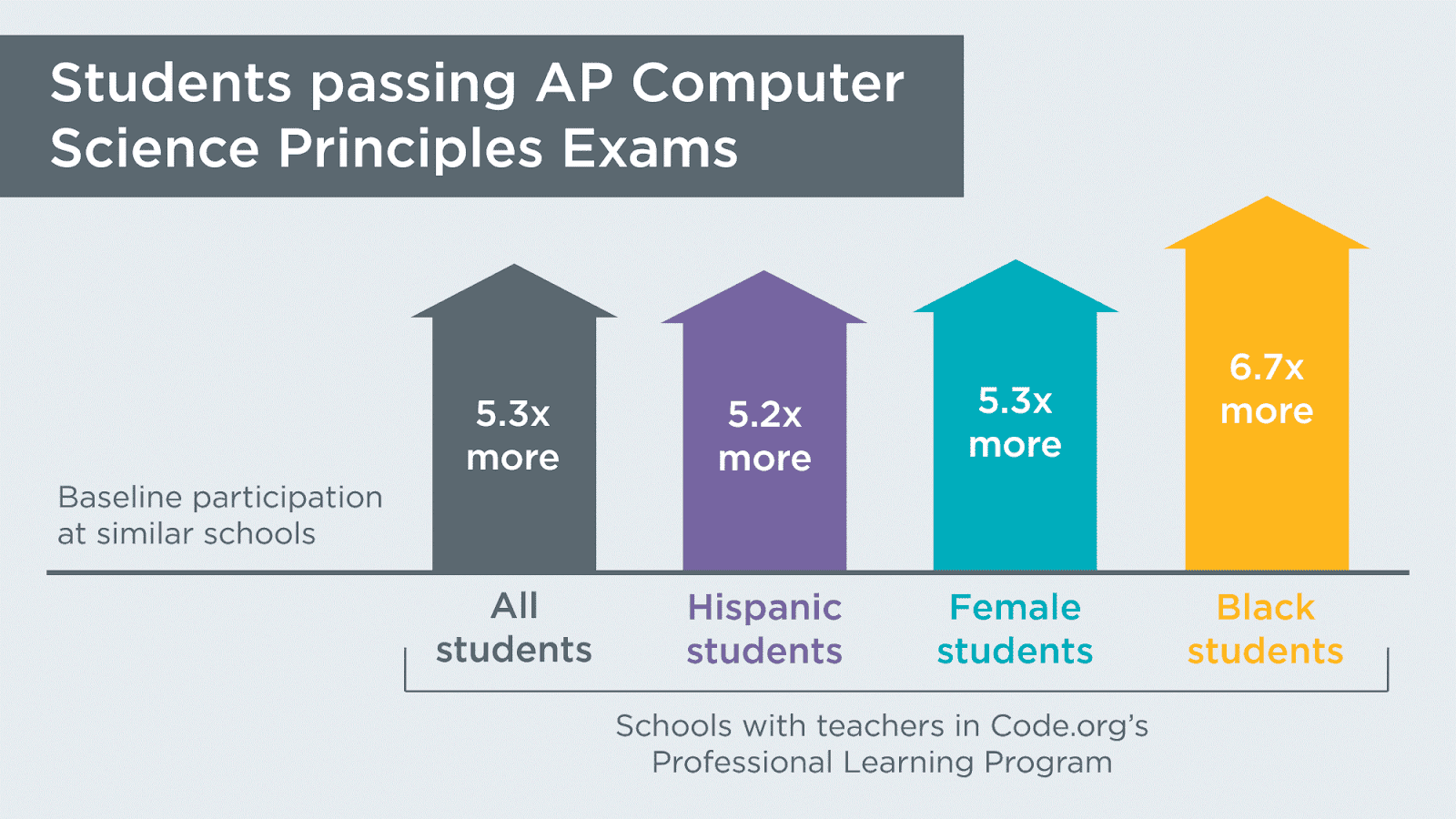
Compared with similarly-situated schools, a school'south participation in the Code.org Professional Learning program causes an estimated five-fold increase in the number of students that take, and earn qualifying scores on the AP Informatics Principles exam. And teachers dear it! Over 90% rank information technology the all-time professional evolution always.
Whether y'all're brand new to computer scientific discipline or an experienced teacher looking for the best mode to apply the Lawmaking.org curriculum, our Professional Learning Plan is a corking fashion to get started.
Our approach to instruction programming: EIPM
EIPM is a structured approach to teaching programming in CS Principles. It introduces concepts in a scaffolded and approachable way to encourage student collaboration, back up independent creation, and clarify the office of the teacher throughout the learning process. Each letter of the alphabet represents a different type of lesson (Due east - Explore, I - Investigate, P - Practise, Thousand - Make), which are taught in sequence for each major programming concept.
For more on the evolution of this lesson sequence, watch the video or read up on this introduction to EIPM.
| "Can I just say I Dearest Lawmaking.org? It'due south my starting time year teaching AP CS Principles (actually 1st year it is offered at our school) - and both the kids and I are having a nail." Jennifer Douglass, CS Principles Teacher |  |
|---|
Getting started with CS Principles!
Stay connected
Let us know how nosotros're doing
We are always looking for means to improve our courses. If something'south not quite working, or y'all take ideas about features that y'all'd similar to see, we'd love to hear from you!
Subscribe for the latest news
Sign up for our monthly emails, which contain the latest news about tools, videos, and other important updates for CS Principles.
Conversation about CS Principles in the forum
We take forums for educators to hash out and trade ideas virtually the CS Principles curriculum. Code.org forums are used for all of our courses, Thousand-12.
Spread the word about CS Principles
Inspire students to enroll in CS Principles:
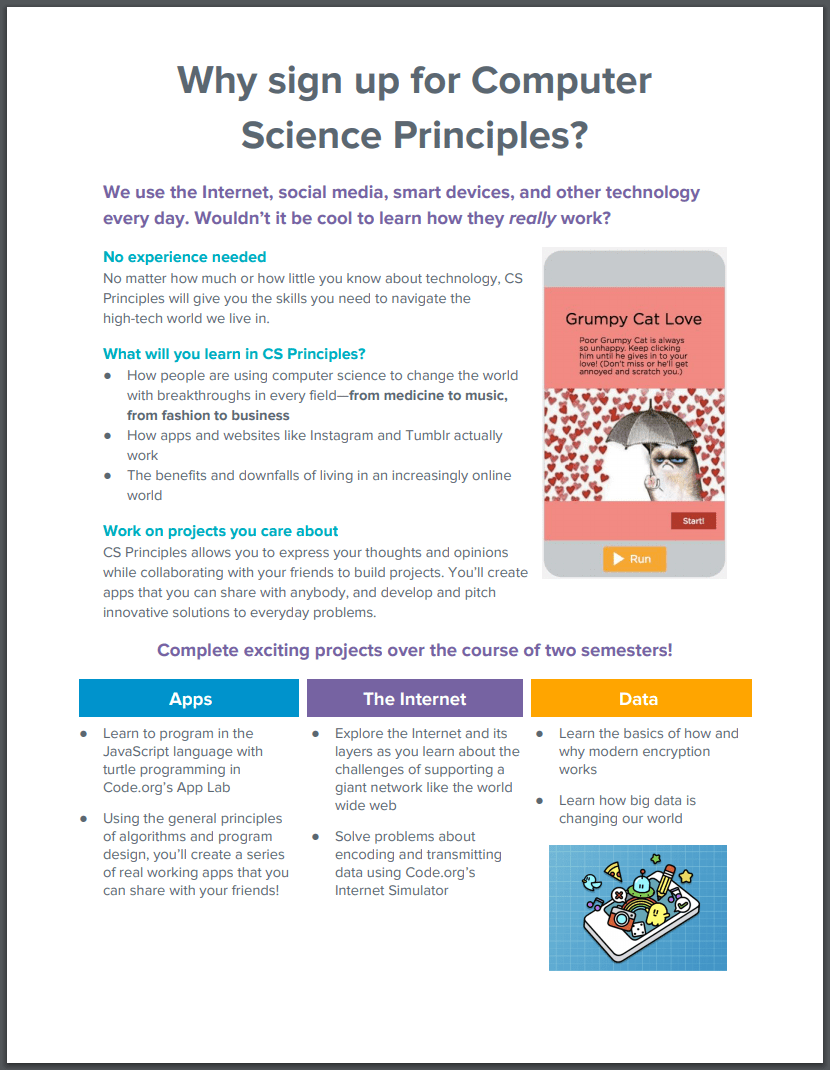

Send dwelling house these fliers.
Hang these posters in your classroom and around your school:

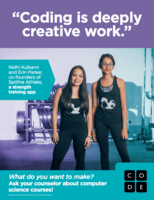


Check out the full poster gallery for fifty-fifty more decorating options!
Often Asked Questions
For answers to our most oft asked questions, click on the questions below!
Is CS Principles mapped to standards?
CS Principles was written using the AP CS Principles Framework and prepares students for the AP CS Principles exam. The curriculum has as well been aligned to the newly revised 2017 CSTA standards. A summary of standards mappings can be found here. A google sheet version of the standards can exist found at CSP Standards 2021.
How much does information technology cost to teach CS Principles?
Our curriculum and platform are bachelor at no cost for anyone, anywhere, to teach!
How/Where tin I get professional evolution for CS Principles?
Our Professional person Learning Programme offers yr-circular support. The programme kicks off with a 5-day summer workshop where you lot'll have an opportunity to work hands-on with the curriculum and encounter other teachers from your area. Throughout the year, nosotros offering forum support and follow-up workshops. You don't need any prior reckoner science experience to go started. And teachers love information technology! 90% rank it the best professional development ever. Click hither to employ and larn more.
Have questions nigh professional person evolution? Provide your contact information to a Regional Partner in your expanse.
If y'all previously participated in the Code.org Professional Learning Program for CS Principles, your Regional Partner may exist hosting a follow-up workshop to help back up your transition to the new class. Please contact your Regional Partner for more than details.
What is the recommended timing for educational activity CS Principles?
We recommend that CS Principles exist taught every bit a full year class, assuming that you encounter with students daily or most daily for 45 or more minutes.
It is possible to teach CS Principles on a semester block schedule, though we highly recommend this implementation merely be used in the autumn semester. Since the AP Performance Tasks are due in late Apr and crave xx dedicated hours of class fourth dimension to complete, most schools find there is not enough time to consummate the grade on a cake schedule in the jump.
What materials do I need for CS Principles?
Required Materials:
CS Principles requires that students accept admission to computers with a modern web browser. At this time, our courses are not optimized for tablets or mobile devices. For more details, check out Code.org'south applied science requirements.
Many lessons accept handouts that are designed to guide students through activities. While these handouts are not required, we highly recommend their use.
In addition to handouts, several lessons call for specific items. You can observe these listed beneath equally well as our suggestions for alternatives:
- Unit of measurement 1, Lesson ii: Array of craft materials for constructing physical devices. Recommendations: cups, string/yarn, construction paper, flashlights, slinkies, noise makers, markers, and mucilage, etc. Alternative: none.
- Unit 2, Lesson 2: Cord for table groups to build a network connecting them. Culling: Students depict their network but don't really build it.
- Unit three, Lesson v: A handful of LEGO® blocks for every pair of students. Alternative: Viscid notes, structure newspaper.
- Unit of measurement 4, Lessons i & v: Plastic bags, sticky notes, dry erase markers. Alternative: Envelopes.
- Unit 5, Lesson 1: Plastic bags, gallon-sized plastic numberless, sticky notes, dry erase markers, tape. Alternative: Envelopes.
- Unit 6, Lessons ii & three: Gluey notes. Alternative: Scraps of newspaper.
- Unit six, Lesson 4: Decks of cards. Alternative: Any item that could exist combined into ii categories (due east.g. change with even / odd year).
- Unit of measurement 7, Lessons 1 & 5: Sticky notes, envelopes, plastic bags, file folders. Alternative: Scraps of paper, folders made of a folded sheet of newspaper, etc.
Optional Materials
The post-obit supplies are completely optional but will be useful to have on hand for various lessons:
- Graph paper
- Chart paper
- Markers
- Post-it notes
How can I access answer keys?
With an approved instructor account y'all can find answer keys in a blue "Instructor Only" panel that shows in the online lessons and activities.
Teachers in our Professional Learning Program will automatically be approved to view answer keys. If you need an canonical teacher business relationship, you lot tin employ for access to protected teacher-only materials (respond keys, etc) through this form. Please continue in mind that information technology may take three-5 business days to verify your business relationship.
How was the curriculum developed?
Our CS Principles curriculum has always been designed equally part of a broader vision of supporting high quality, engaging, and equitable computer science educational activity in classrooms across the country. Our Curriculum Values continue to guide us, and in item our focus on expanding access to those who historically have been denied opportunities to acquire about the exciting and impactful field of computing.
While our vision and values remain unchanged, the landscape of CS education is rapidly developing. For the 2020-21 school yr the College Lath has made some significant updates to the CS Principles framework and AP assessment to ensure that CS Principles remains relevant and aligned with equivalent university courses. CS instruction research continues to reveal new insights on how students learn about computing, and feedback from the thousands of classrooms now using our CS Principles curriculum has identified opportunities to further improve our courses, tools, and recommended pedagogy. The goal of the updates to our curriculum is to navigate these developments in a way that remains committed to our vision and values and supports the many teachers, schools, classrooms, and districts that are already a part of our broader CS Principles community. Nosotros remain deeply thankful for you joining us on this mission to brand our commonage vision a reality.
For more information most our goals and approach to our courses, delight see our curriculum values and our professional learning values.
Beyond CS Principles: Standalone AI Module
Artificial intelligence (AI) and auto learning (ML) are shaping the world effectually us. As these technologies touch more and more than of our daily lives, they have become an essential part of foundational reckoner science education. In this standalone module, which spans roughly 5 weeks, students can larn the fundamentals of these technologies and discuss their ethical implications.
AP® is a registered trademark of the College Board.
Source: https://code.org/educate/csp

